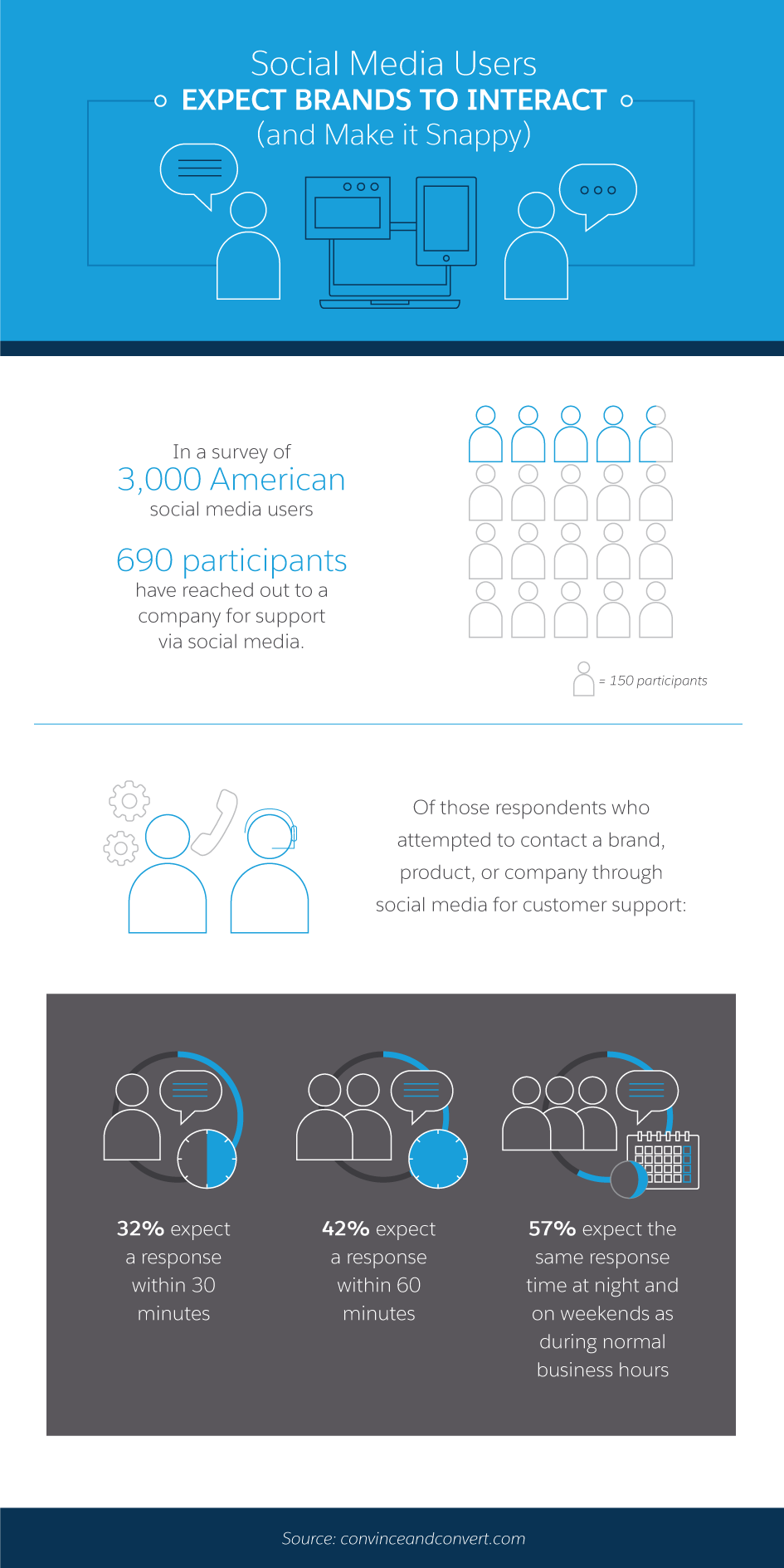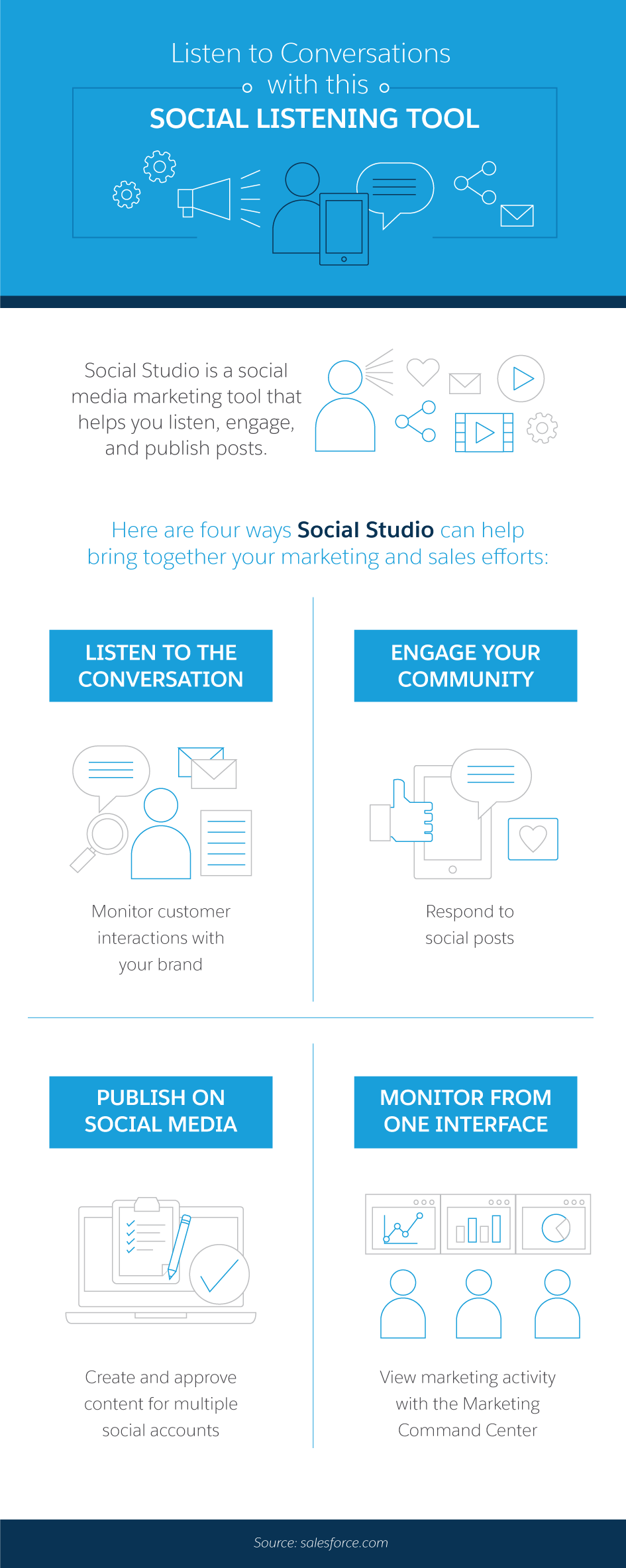Marketing and social media managers understand the value of business presence on sites like Facebook and Twitter, but occasionally a disconnect exists between work performed and seeing the true value in what the team is doing.
It's hard to justify your social media efforts if there aren't any leads garnered from it. Executive leadership can get frustrated and refuse to increase spending on anything at all, which can backfire and make results even worse. If you struggle with true results in the form of valuable leads or conversions from social media, here are some effective strategies to try.
Share More Fun Content
Part of steady lead generation on social media has to do with building and interacting with your audience. This means sharing a mixture of content, not just self-promotional posts, which will quickly fall out of users’ newsfeeds when people don’t engage (by liking, clicking, sharing, or commenting) with the content. If you feel like your shared content doesn’t get a good reaction or engagement on social media (especially Facebook), try to post something thought-provoking or humorous.
For example, a delivery and carryout online system used this approach. They posted an article about McDonald's building "the world's smallest McDonald's" for a hive of bees. The article featured photos of the miniature American fast-food mainstay. The post garnered enormous engagement because it was fun and conversation worthy.
Do posts like these generate leads? Likely not, but they definitely help build an engaging social media presence that will raise brand awareness. When it comes to building leads, the build-up beforehand can go a long way in achieving organic leads.
Social Media Users Expect Brands to Interact (and Make it Snappy)
- In a survey of 3,000 American social media users:
- 690 participants have reached out to a company for support via social media.
- Of those respondents who attempted to contact a brand, product, or company through social media for customer support:
- 32% expect a response within 30 minutes.
- 42% expect a response within 60 minutes.
- 57% expect the same response time at night and on weekends as during normal business hours

Look for Mentions as Leads
We mentioned this tip when we discussed customer service on social media, and the same principle applies to lead generation. Regularly search your brand, service, or product as well as competitors’ all with incorrect spellings. This gives you a unique opportunity to respond to users’ questions that your competitors (and your regular mention searches) haven’t found.
Searching for mentions of a brand or product without the # or @ symbols is also a good idea. Not everyone knows (or cares to) add a # or @ in front of every brand name or product that they mention.
Once you find relevant posts, you can use them as prime opportunities to engage. A clothing brand, for instance, can reply to questions about their products or offer things like:
A “social media fan” promo code or discount (even if it’s the same discount you offer other channels, just use a different promo code for tracking)
The exact product link as a reply to the commenter asking where it’s from
URLs to their own similar products (in the case of a competitor)
Adding this type of a personal touch can grow and solidify brand loyalty and increase the likelihood that people will tell their friends (and — better yet — share about it on social media).
This approach can be a little more time consuming because it’s manual, human outreach, but it’s also the most likely to have an impact. You can manually search on each platform or run multi-platform searches with a tool like Social Studio.
Helpful Social Listening Tools
- Social listening lets you see what people say about your brand, industry, and competitors across different social media platforms
- Awario
- The budget-friendly tool
- Supported networks: Facebook, Twitter, Instagram, YouTube, Google+, Reddit
- TweetDeck
- The Twitter official tool
- Supported networks: Twitter
- Agorapulse
- The scheduling and monitoring tool
- Supported networks: Facebook, Twitter, Instagram, YouTube
- Mention
- The real-time search tool
- Supported networks: Facebook, Twitter, Instagram, YouTube, Google+, Reddit
- Keyhole
- The analytics tool
- Supported networks: Twitter, Instagram

Be More Proactive
Another similar tactic that many marketers don’t employ? Proactively searching for phrases that show purchase intent. For instance, in the case of a business formation service, social media managers could exact match search for buyer intent phrases, such as “get my LLC.” This reveals a wealth of results of users asking questions and stating they want to get their LLC to start a business.
In this instance, a business formation service could reply and direct the user to a URL that guides them through the process. They could also offer a small promo code to entice the user to tap into their service and start the process ASAP.
Even though it isn’t always counted as social media alongside Facebook, LinkedIn, Instagram, and Twitter, Reddit is another great place to search for buyer intent phrases as well as misspellings and brand mentions.
Users like when brands reach out to them when they ask for help. But be careful in the way you approach these interactions. You want to come across as friendly and relatable, not pushy and self-promotional. Experiment with wording and approach, and use unique promo codes and UTM codes to track the success of this type of social media outreach.
Tighten Up Your Profiles
Many managers and executive leadership wonder why their social media profiles don’t get any love, but they fail to recognize that the little details fall through the cracks. As social media platforms continue to revamp their sites, they add more options and informational fields or features brands can use to further promote their products and services. These often include links where a customer can learn more about a company and its products.
For instance, many companies miss out on LinkedIn’s Showcase Pages, which are pages affiliated with your main business page but have their own URL. Think of them as landing pages for your offerings within LinkedIn.
Facebook also offers something similar in its Services section. You can also add custom pages and tabs on the left navigation of a Facebook page.
Run a social media profile audit where all profile sections of the company are examined, filled in to their best capacity, and make the best use out of having a profile on each major platform. To increase leads, include URLs and clickable calls-to-action where possible. For instance, links are automatically clickable when included on Twitter bios and YouTube video descriptions.
Showcase Your Brand with LinkedIn Showcase Pages
- Showcase Pages are extensions of your LinkedIn Page
- They’re designed to spotlight a brand, business unit, or initiative.
- You can create Showcase Pages for aspects of your business with their own messages and audience segments to share with.
- Interested members can follow your Showcase Page.
- To create a Showcase Page:
- From your LinkedIn homepage, click the Work icon.
- Click Create a Company Page.
- Click Showcase page.
- Enter the required information as indicated by an asterisk.
- Click the box verifying that you have the right to act on behalf of the organization in creating the Showcase Page.
- Click Create page.

Freshen Up Ad Campaigns
This seems like the most logical approach (and probably the most commonly recommended) when marketers ask, “How can I increase social media lead generation?” Even though freshening up existing ad campaigns can get leads quickly, it shouldn’t always be the best and first course of action for increasing social media leads.
If a paid social campaign is optimized enough to generate some interest but the lead contact process, landing page, or offer lack clarity or intrigue, users won’t actually convert into leads.
The best social media lead generation campaigns are part of a total package: a comprehensive online presence that includes fully optimized social-media profiles, an active presence (through commenting, suggesting products, and interacting with the online community), and opportunities to build and grow relationships. By thinking outside the realm of “what self-promotional post can we share today?” and more about better-optimized campaigns and personalized outreach, brands can obtain more leads from social media that can turn into actual revenue.
Share "What To Do If You’re Struggling with Social Media Lead Generation" On Your Site



